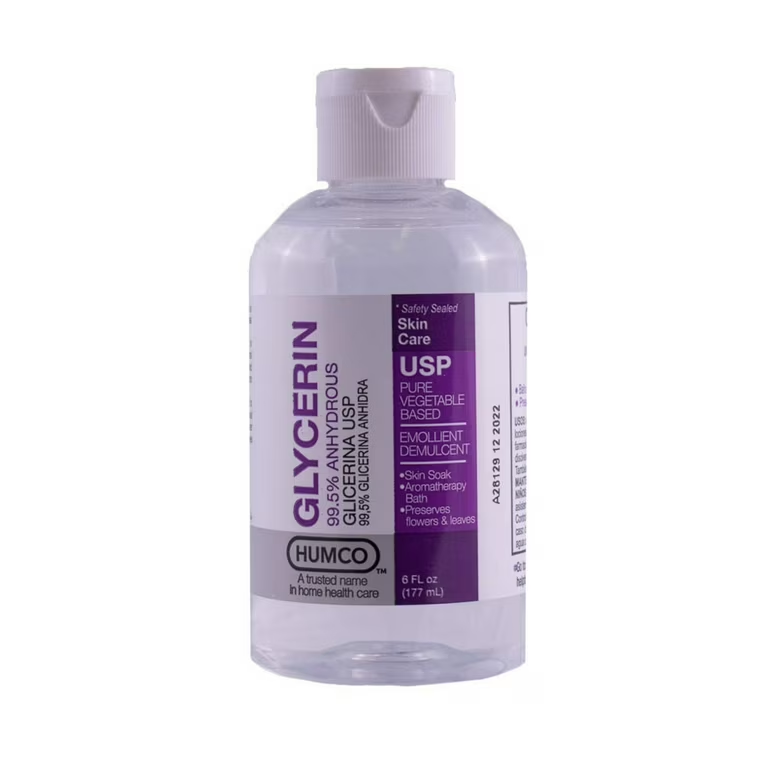In the competitive world of industrial manufacturing and personal care, the quality of raw materials can define success. Glycerin USP with premium purity serves as a cornerstone in pharmaceutical and personal care products, offering unmatched performance, stability, and customer satisfaction. For factories and brands aiming to elevate their products, choosing a reliable supplier is a strategic move that can significantly enhance product quality and streamline production processes.
At MT Royal, we have collaborated with numerous manufacturers and observed firsthand how premium-grade Glycerin USP not only improves the end product but also optimizes operational efficiency. This comprehensive guide explores its applications, industrial insights, and practical considerations, enabling you to make informed decisions for both production and supply chain management.
Understanding Glycerin USP
Glycerin USP is a colorless, odorless, viscous liquid alcohol with multiple hydroxyl groups, derived either from plant oils or synthetic processes. The “USP” designation ensures that the glycerin meets strict quality and purity standards suitable for pharmaceutical and personal care applications.
In industrial settings, Glycerin USP is prized for:
- Humectant properties: Retains moisture in cosmetic and pharmaceutical formulations.
- Solvent capabilities: Effectively dissolves active ingredients without altering their stability.
- Stabilization: Enhances shelf life and texture in creams, syrups, and topical formulations.
By understanding these fundamental characteristics, manufacturers can leverage Glycerin USP to create superior products while maintaining compliance with regulatory standards.
Common Mistakes in Industrial Sourcing
Despite its widespread use, several common pitfalls can affect the efficiency and quality of Glycerin USP procurement:
- Overlooking Purity Grades: Not all glycerin is USP-grade. Using substandard material can compromise product quality, cause regulatory issues, and increase production costs.
- Ignoring Supplier Reliability: Choosing suppliers without a proven track record may lead to inconsistent batches or delayed deliveries.
- Improper Storage: Glycerin is hygroscopic. Without proper storage conditions, it can absorb moisture, altering concentration and performance.
- Failure to Evaluate Compatibility: Not all formulations respond the same to glycerin. Compatibility testing in the early stages prevents costly reformulations.
At MT Royal, we guide manufacturers to avoid these errors by providing consistent, high-purity Glycerin USP suitable for both large-scale production and specialized formulations.
Applications in Pharma
In the pharmaceutical industry, Glycerin USP plays a critical role across multiple product categories:
1. Oral Formulations
Glycerin serves as a solvent and sweetening agent in syrups, elixirs, and suspensions. Its humectant properties also improve the texture and palatability of pediatric and adult medicines.
2. Topical and Dermatological Products
Glycerin USP is a primary ingredient in creams, ointments, and lotions due to its moisturizing properties and ability to enhance skin absorption of active ingredients.
3. Capsules and Tablets
As a plasticizer, glycerin improves the flexibility of gelatin capsules and prevents cracking, ensuring a longer shelf life and easier handling during production.
4. Pharmaceutical Excipients
It acts as a stabilizer and viscosity modifier, ensuring uniformity in liquid formulations and supporting the integrity of complex drug compositions.
By integrating high-purity Glycerin USP, pharmaceutical manufacturers can ensure compliance with USP standards, reduce product variability, and maintain patient safety.
Applications in Personal Care
The personal care industry relies heavily on glycerin for its multifunctional properties:
1. Moisturizers and Creams
Glycerin USP attracts and retains water in the skin, making it an indispensable ingredient in skincare products for hydration and barrier protection.
2. Hair Care
In shampoos and conditioners, glycerin acts as a humectant, smoothing hair cuticles and reducing breakage.
3. Toothpaste and Mouthwashes
Glycerin prevents the drying of toothpaste, maintains texture, and ensures consistent delivery of active ingredients.
4. Soaps and Bath Products
It improves the smoothness and lather of soaps, while also enhancing skin moisture after use.
We at MT Royal understand that personal care manufacturers need both consistency and flexibility. Supplying Glycerin USP with premium purity ensures that every batch meets the exacting demands of modern formulations.
Industrial Insights for Large-Scale Production
Manufacturing with Glycerin USP at scale requires careful consideration of process parameters:
- Temperature control: Glycerin’s viscosity increases at lower temperatures, affecting pumping and mixing.
- Mixing protocols: High-speed mixers are often required for uniform dispersion in emulsions.
- Quality testing: Regular assays for water content, pH, and microbial limits ensure batch consistency.
- Storage and handling: Maintain closed containers in a dry environment to prevent contamination and moisture uptake.
By implementing these industrial practices, manufacturers can minimize waste, optimize efficiency, and maintain the premium quality of their end products.
Frequently Asked Questions (FAQ)
Q1: Why is USP-grade glycerin important for pharmaceutical products?
USP-grade ensures compliance with pharmacopoeia standards, guaranteeing purity, stability, and safety for human use.
Q2: Can glycerin USP be used in organic personal care products?
Yes, but it must be derived from certified natural sources. Synthetic glycerin may not meet organic certification requirements.
Q3: What is the shelf life of glycerin USP?
Typically, glycerin USP has a shelf life of 2–3 years when stored in tightly sealed containers under recommended conditions.
Q4: How do I ensure consistent quality across large orders?
Partnering with a reliable supplier like MT Royal ensures uniformity through standardized production, quality testing, and batch traceability.
Q5: Are there regulatory considerations for glycerin in cosmetics?
Yes, regulatory requirements vary by region, but USP-grade glycerin generally meets FDA, EMA, and other international guidelines for cosmetic and pharmaceutical use.
Industrial Tips for Maximizing Benefits
- Batch consistency: Always source from suppliers who provide batch-specific certificates of analysis.
- Process optimization: Incorporate glycerin at controlled temperatures to prevent crystallization or phase separation.
- Formulation innovation: Combine glycerin with other humectants or emollients for enhanced product performance.
- Sustainability focus: Select suppliers who offer traceable, plant-derived glycerin to align with environmental standards.
At MT Royal, we have seen manufacturers achieve superior product stability and consumer satisfaction by following these best practices.
Comparison Table: Glycerin Grades
| Feature | USP-Grade Glycerin | Technical Grade | Industrial Grade |
|---|---|---|---|
| Purity (%) | ≥99.7 | 95–99 | 90–95 |
| Suitable for Pharma | Yes | No | No |
| Suitable for Personal Care | Yes | Sometimes | No |
| Certificate of Analysis | Yes | Optional | Optional |
| Regulatory Compliance | USP | None | None |
This table helps manufacturers quickly assess the appropriate grade of glycerin for their specific applications.
Conclusion
Selecting Glycerin USP with premium purity is more than a procurement decision—it is a strategic investment in product excellence and operational efficiency. By working with a trusted partner like MT Royal, manufacturers can access consistent, high-quality glycerin, enabling them to meet rigorous pharmaceutical and personal care standards, innovate with confidence, and strengthen their competitive position.
Premium glycerin empowers factories to produce superior formulations, reduce process variability, and maintain customer trust—critical factors in today’s demanding industrial and consumer markets.







No comment